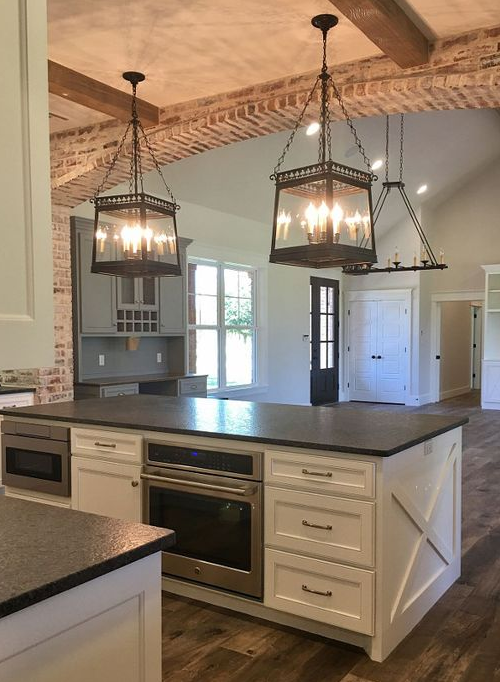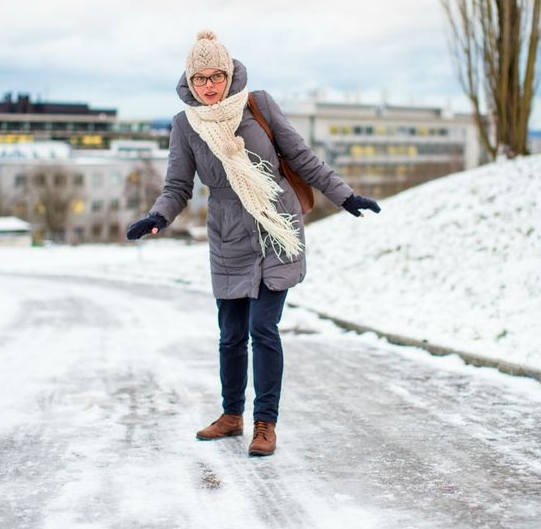The Top 12 Tips For a Safer Holiday Home in Evergreen
Our world is full of risk at every turn—from perilous jobs, to skiing in marginal conditions, to dangerous driving on I-70. That’s why we all love to get back to our homes and not worry about everyday safety hazards. It’s great to feel comfortable and safe at home, but is it as safe as it can be?
Your home should be your haven: the place where you will be protected from harm. It should be a top priority, and yet every year 1200 people or more visit the emergency room during the holiday months due to accidents and unintended injuries sustained from hidden dangers around the home.
With a sharp eye and preventive action you can reduce the chances of lurking safety dangers for everyone who visits your home.
The Top 12 Home Safety Tips
1. GOOD LIGHTING— Adequate lighting reduces the risk of tripping and falling both inside and outside your home. 
2. ELECTRICAL PROBLEMS?— Electrical issues, like a flickering light or a dead outlet, can be mild annoyances that actually signal serious dangers. If not addressed promptly, a faulty electrical system can result in house fires and shocks. The fix: If you’re experiencing any problems with your electricity, contact a professional right away. In your daily life, make sure electrical cords are not frayed or pierced and extension cords are securely connected. Do not run too many cords to a single outlet. Unplug small appliances, space heaters, and power tools when not in use.
3. DO ROUTINE CLEANING— Not maintaining your 
4. SMOKE AND GAS DETECTORS— Every home needs functional warning devices that detect smoke and gases. The fix: When purchasing smoke alarms, make sure they also detect carbon monoxide, a deadly gas that is especially dangerous because it is colorless and odorless. Replace the batteries every six months—or whenever you change your clocks. Create an emergency evacuation plan, build a preparedness kit, and practice regular safety drills with your family to ensure awareness of procedures.
5. SECURE YOUR HOME— Even though Evergreen is a very low crime area you might want to have an eye toward prevention. Many homes now have the latest technological advancements but still rely on locks and hardware from decades ago to keep you safe from intruders. The fix: Do an audit of all entry points to your home—doors and windows and screens. If any do not have secure screens, locks, and deadbolts, have them installed. For those entry points that do already have door knobs, handles, and locks, make sure that they are in good working condition.
6. WHEN YOU ARE AWAY— We all enjoy long weekends and out-of-town vacations, but unfortunately that leaves your home vulnerable to intruders. The fix: Create the illusion that someone may still be there. Leave a TV or stereo on in the room where a burglar would most likely break in. Have neighbor pick up mail and the daily paper. Keep blinds drawn, and don’t leave unsecured valuables in the home even if you think they are well-hidden. Never hide keys around the home or garden, and don’t leave notes on the door that suggest you are out of town. I have dozens of lockboxes that are frequently not deployed during the holidays--feel free to ask me if you want to borrow one during your trip!
7. HOUSEHOLD REPAIRS— Even if you are an expert and know your way around electrical, plumbing, car or other household repairs, proceed with caution. A poor repair could be a recipe for disaster. The fix: Call a professional or ask me for a referral from our trusted sources.
8. VEHICLE CAUTION— Remember that there is danger even before you drive on the street. If you are backing your car up, watch out for children and pets on the sidewalk and road. 
9. MAKE IT SAFE FOR VISITORS— If you are hosting friends and family, consider what additional safety challenges they may face. Consider whether leaky gutters have created ice spots on walkways. The fix: Put yourself in the shoes of a small child and look for low, hard edges, sharp objects, easy-to-open cabinets with chemicals and cleaning agents. Look for falling and tripping hazards that may fell seniors.
10. BRACE YOURSELF— Heavy objects are rarely braced in the home. Appliances, artwork, televisions, and aquariums present real hazards if they are knocked down by a person or a natural disaster. The fix: Strap and brace heavy objects and use security hardware for large artwork.
11. UNCOVER HIDDEN DANGERS— If your home was built before the late seventies, there’s likely lead in the paint under the top coats on your walls and windows, and there might be traces in the varnish used on many hardwood floors. In addition, asbestos often can be found in insulation and “popcorn” ceiling textures. The fix: Hire a licensed contractor to test for possible contaminants and remove them safely, especially prior to a remodel.
12. MOTHER NATURE— Your homeowners insurance will cover you in many instances, but did you know that you may not be insured against natural disasters like earthquakes, floods, tornadoes, and hurricanes? Luckily we probably won't have a hurricane in Evergreen any time soon. But we do have wildfires to consider. Some providers will want to be assured that proper wildfire mitigation has been performed.. The fix: Contact your insurance agent to make sure you have adequate replacement coverage as home values escalate and coverage amounts can stay static. Discuss costs for adding disaster policies. Finally, having a disaster and communication plan can minimize the risks.
Safety Dangers to Kids You May Not Think About
Do you have small children who live with you? Even if you don’t, with the holiday season rapidly approaching, your home may welcome friends with young children and older family members. This makes now the ideal time to survey home your home for potential safety problems.
OPEN WATER
Did you know that as little as an inch of water can be a major hazard? A pail of water in the yard, large puddles from a storm, even a washing machine can induce a small child to trip or fall into and become at risk. The fix: Watch for open ice chests and other standing water, and don’t leave toilet seats open.
SMALL BATTERIES
Button-sized lithium batteries power small electronic devices, including remote controls, watches, musical greeting cards, and ornaments. When accidently swallowed, they can get stuck in the esophagus and generate an electrical current that can cause severe chemical burns and tissue damage. The fix: Only let small children play with mechnical devices and toys under supervision, and make sure to put these items away when not in use.
WINDOWS AND STAIRS
Every year, more than 5,000 kids end up in the emergency room after tumbling out of a window. Combat that by installing window guards or window stops so kids can’t fall out. Stairs are another potential hazard for youngsters with less-than-perfect balance. The fix: Baby gates can prevent young kids from venturing up or down. Steps should always have firm footing and be clear of objects as even older people can slip and fall or trip on items left on the stairs.
FAMILY PETS
Cats can scratch a child not used to playing with finicky felines. The family dog may be big and loving but can outweigh a child by five times. Children can be easily knocked down, nipped, or even bitten by a dog not used to the activity of small children. The fix: Monitor play activity and make sure your pet is not getting anxious or annoyed.
CORDS
Babies can be strangled by cords on blinds and shades. The fix: Excessive cords of all types should be removed or secured down. Always keep cribs away from windows with loose cords.
Now’s the Time
With the upcoming holidays at hand, now is the perfect time to survey your home and address potential safety hazards to yourselves, your family, and your friends. It doesn’t take long, most fixes are very inexpensive and simple to do, and your efforts will pay dividends in peace of mind for years to come.
If you would like our advice on how to make your home safer and need a list of trusted sources for home repairs, please contact us today. It’s our business to ensure that your home is safe and secure for your family.




